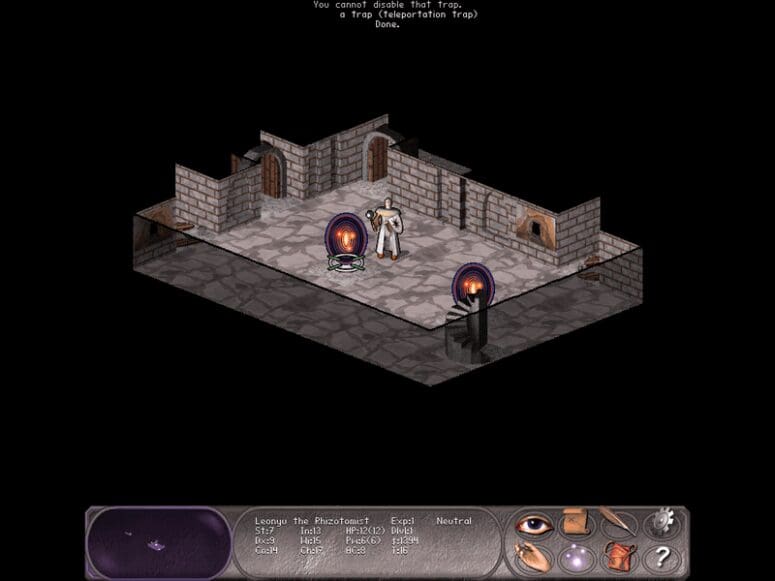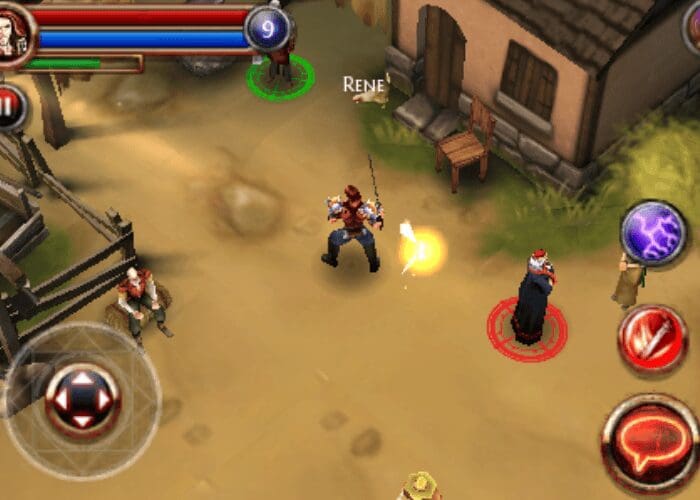A Simple Step-by-Step Walkthrough for How to Sell Your House
- Published on
- 5-7 minute read
-
 Michelle Nickolaisen Contributing AuthorClose
Michelle Nickolaisen Contributing AuthorClose Michelle Nickolaisen Contributing Author
Michelle Nickolaisen Contributing AuthorMichelle holds a B.A. in Fashion Design and Marketing from Missouri State University. She has over 10 years of experience writing on everything from real estate to small business and technology. Her work has been featured in Entrepreneur, Fast Company, Intuit QuickBooks, MediaBistro, and other publications.
You’ve decided: it’s time to sell your house. You know the road ahead might be fraught with hidden dangers (much like the dungeon traps in your favorite video games growing up) and seemingly-random encounters. The road ahead is dark and full of terrors.
Don’t worry — we’ve built this walk-through to help you on your way.
We’ll cover everything about how to sell your house from how to find a real estate agent, what questions to ask to vet potential agents and decide if they’re a good fit, prepping your home to be sold, and navigating potential pitfalls during the closing process, with insights from top-selling agents around the country.

Starting Out: Find an Agent
It’s dangerous to go alone.
Most heroes have a mentor to help guide their journey. This is no exception — selling a house on your own can be difficult and time-consuming, for many reasons. Because of that, you’ll want to find a real estate agent to work with. Of course, then you’re faced with a new challenge: how do you find the right agent for you?
First off, don’t just settle for the first one you come across. Janet Weidmann, a top seller’s agent in Johns Creek, notes that “a lot of sellers might think that all real estate agents are created equal and they’re absolutely not.” You want the right one for you and your beautiful snowflake of a property.
Here’s how to find that special someone real estate agent:
First, interview a handful of agents.
Sadly, 77% of homeowners go with the first real estate agent they speak to. This is someone who is going to handle one of the largest transactions in your life. You’re going to spend your days with them, pour over contracts with them, and put a significant amount of faith in them. While there are plenty of great agents out there, it’s a better practice to chat with at least two or three before you make a final decision.
Don’t be tempted by websites that let you ‘sell your house fast for cash!‘ You’ll end up losing thousands of dollars you could have made if you hired a real estate agent and waited out the process just a little longer. While the result isn’t immediate like one of these sites promises, the money you’ll get from the sale is worth it.
Ask for specific anecdotes about the agent’s experience.
Here’s where the conversation gets interesting. In the agent’s initial pitch, you need to find out everything you can about how they get the job done.
Ask them questions like:
- Can they name a time they helped a seller get more for their house than expected?
- What about a time they helped someone sell their house quickly?
- Do they stick with old-fashioned techniques, or list it on a website?
- Do they have actual marketing strategies (“we create a profile of potential buyers and outlets that those buyers are likely to be looking at”) or just put the home up for sale in the usual listings?
- What’s included in their fees? Some agents include staging, photography, videography, and repairs (typically with a cap on spending) in their fees.
Look at online reviews but take them with a grain of salt.
Reviews are good indicators of the real estate agent’s customer service skills and they can give you a peek into the way they interact with clients. Unfortunately, online reviews are anecdotal. An agent with positive reviews might not be able to sell your house as fast as another agent and an agent with a few bad reviews might have just had a bad day.
Talk to previous clients and get details on previously sold properties.
Ask your potential agent if they have a client or two that you could talk to — someone who has sold property similar to what you’re selling, if possible. Ask them questions about the experience of working with the agent: what they liked, what (if anything) they didn’t like, and any other questions you can think of.
Once you’ve got a few candidates narrowed down, look at their real estate license.
Licensing and discipline are done on a state-by-state basis. Check with the regulatory body in your state to make sure that your real estate agent is licensed and see if there have been any complaints about them. A quick Google search should do the trick.
Watch for these red flags:
One red flag is if the agent doesn’t know much about your neighborhood, although this will depend on where you live — in some areas, there are huge variances in price from neighborhood to neighborhood. In other areas, it might not make as much of a difference.
Another one is that the agent only does real estate part-time. You want a full-time professional who has their finger on the pulse of the real estate market and knows all the ups, downs, and intricate details of it.
In addition to a license, agents can get credentials for completing additional training.
The most relevant initials to watch out for are:
- CSR (Certified Residential Specialist): trained to handle residential real estate
- SRES (Seniors Real Estate Specialist): trained to help buyers and sellers in the 50+ age bracket
- SRS (Seller Representative Specialist): trained specifically to represent sellers
Last but not least, if an agent uses the term Realtor with a capital “R”, that means they’re a member of the National Association of Realtors and have formally pledged to support a code of ethics.
There’s a few other types of real estate agents but there’s no need to cover them here.
One last thing: HomeLight makes all of this easier
We’d be remiss if we didn’t mention that you can compare real estate agents by their housing transaction data, tailor your search specifically to your property, and get additional help from a trained agent concierge by entering your address on our homepage.
Okay, I’ve found an amazing real estate agent, what’s next?
Great! That’ll make the rest of the sales process much easier.
The next thing you need to do is start preparing your house. We’ll get more into house prep in the next section, but in the meantime, start decluttering your entire home.
Janet suggests packing up clothes, toys, and anything else you won’t be needing in the next 30-60 days. “You’ll be packing and moving anyways — this gives your rooms a more spacious appearance, and you get a head start on packing!” This ridiculously thorough decluttering guide can get you started.

Level 2: Listing, Marketing, and More
Start prepping your home for an open house before it’s listed — there’s a lot to do and it’ll be much less stressful than rushing through everything last minute.
Here’s Janet’s home-prep checklist:
General Maintenance:
Paint any rooms that have bold colors to light neutral colors — gray is the color for 2016-17 (she suggests Pediment by Sherwin-Williams for walls and Snowbound for trim). Remove 99% of your personal photos and knick-knacks, along with any ugly storage containers (replace them with baskets, if you must have them).
Deep clean everything, including vacuuming dust from vents and dusting fans. Replace all of your energy efficient light bulbs for the time being (sorry environment). They take time to brighten up, which can give buyers a bad impression of your home. Replace them with instant bright bulbs, so your buyers aren’t wandering around in dim rooms.
Kitchen:
Remove everything from the countertops, then put one item back (a bowl of fruit or a piece of favorite pottery). The idea: to make the counters look as though there’s plenty of room for cooking. Remove all magnets and notes from fridge doors, sides, and top. Remove all area rugs from around the sink or the fridge — this lets the flooring show through.
Bathrooms:
Replace all towels with white towels. Remove all throw rugs and everything from the shower/tub area. Once that’s done, roll up a few white towels and set them at the corner of the tub with a package of nice spa soaps or bubble bath.
Pets:
Remove pet bowls and litter boxes. Don’t ever use candles to make a house smell good — buyers will think that you’re trying to cover up pet odors. Instead, use an odor eliminator like Febreze.
Windows:
Remove broken blinds, along with all screens from the house windows. “The screens make the difference between looking through a foggy lens and a clear one — removing them gives potential buyers a much clearer idea of what they’ll be able to see.” Along the same lines, wash all windows, inside and out.
Exterior:
Trim back the bushes and limb up trees. Trees need to frame the house, and bushes shouldn’t touch the exterior of the home or block the view from the windows. Add fresh pine straw or mulch to flower beds, and remove debris, hoses, yard art, and any other miscellaneous items from your yard, then power wash your sidewalk.
Last but not least, make sure the front door is flawless.
It’s the first thing buyers see. While you or your agent stands at the door fumbling with your keys, buyers will look around and notice the details. Get a fresh coat of paint on the front door, add a flower pot near the door, look at everything else on the porch and around the entryway (hardware, etc.) and make sure it’s all shined up and spiffy.
There are a few other things that need to be done before listing your home:
Professional staging (from Janet: “90% of houses need it, and even when it’s okay, it could usually be done better”), pre-listing inspection, and sometimes a home appraisal, depending on where you’re at in the market and how unique your property is.
John Mick, the #2 ranked seller’s agent in Round Rock in 2016, says this stage is where one of the biggest misconceptions comes up: “Sellers have to realize that buyers don’t buy rationally, they buy emotionally.”
He’ll have clients who know they need to replace their carpet or repaint but they’d rather just give the buyer a carpet allowance in the closing costs. The problem is that it just doesn’t work that way.
“The buyer needs to be able to see themselves in your home, living in it, enjoying it. They can’t do that if it looks bad.”
Once you’ve worked together with your agent to do all the pre-listing prep, it’s your agent’s turn to list the house, set up an open house, and market your home. When the day of the open house rolls around, you should probably make yourself scarce. It’s natural to want to be around to answer questions but that’s your agent’s job — and your presence might keep buyers from being honest with their comments and questions.
If potential buyers can’t be honest with their questions, their sales objections won’t get addressed by the agent and they probably won’t make an offer.

The Final Stretch: Negotiations and Closing
Working with your agent, you’ve completed the open house and the offers are rolling in. Your agent will guide you on how to evaluate offers, but overall, here’s what you’re looking at:
Price, obviously.
Earnest-money deposit, a sum of money (also referred to as a good faith deposit) that might accompany the offer. Sometimes this deposit is paid in two parts: a flat fee when the offer is submitted, and the rest (usually a percentage of the purchase price) when the contract is signed. The idea behind this is that if the buyer backs out, they forfeit this sum, meaning there’s less risk involved for you. (If they don’t back out, the money is typically applied towards closing costs.)
The down payment, or how much the buyer plans to pay in cash towards the purchase price. The higher the down payment (ideally, it’ll be 20% or more), the greater the chances of a successful loan. Don’t forget to look at when the buyer will be making the down payment (for example, 10% down within the first two weeks of signing the agreement, and the other 10% at closing).
The financing contingency, or how the buyer plans to put together the rest of the money (unless you’ve received an all-cash offer). Ideally, the buyer will be pre-approved. You’ll also want to see what the financing schedule is — how soon before the closing date the buyer will be able to confirm their financing. If you can, negotiate for the soonest confirmation date you can to prevent last-minute snags.
If your real estate agent knows their stuff, you should be pleasantly surprised with the offers.
However, nobody’s perfect — so even if they did everything right and are knowledgeable about the market, you might both find that the offers are lower than you wanted. When it comes to this scenario, trust your real estate agent and don’t forget to take into account other factors (taking a lower offer might be necessary if you want to sell the house ASAP, for example).
By the way, you should consult a lawyer either during or after the home sale is closed.
Richard Paz, a top 1% seller’s agent in Miami Beach, says that having a realtor who can give you some advice on things like the tax implications of selling your home is important but that you also need to consult a tax attorney. “A good agent can refer you to the right professionals for things like taxes and estate planning,” he notes.
After you evaluate your offers, you find one that’s amenable to you, and you and the buyer come to an agreement. You accept the offer. What’s next?
Here’s a top level view of what happens between acceptance and closing:
- The buyer schedules their private home inspection (usually done within 7-10 days of the offer being agreed on).
- Assuming the buyer is satisfied with the inspection results, they order an appraisal through their lender. The appraiser…well appraises, typically taking 30-60 minutes to do so, with the results being back within a week.
- Assuming the appraisal wasn’t far off the agreed-upon purchase price and no repairs are required, you’re in the clear. If that’s not the case, re-negotiation will happen.
- If everything is still moving along, wrap up your packing and get ready for closing.
- Don’t forget to transfer the utilities out of your name, change your subscription/billing address where need be, and set up a forwarding address with USPS.
- Now, you’re waiting for a clear to close, which means all conditions have been met and the buyer is 100% approved and ready to close on your home. Sometimes this happens several days before the closing date, but it depends on how busy the banks are at the moment — sometimes, they wait until the last minute, and the clear to close doesn’t come through until a day or two before closing.
- On closing day, everyone involved in the sale will need a copy of their driver’s license or passport, along with whatever payment methods are accepted (if money is changing hands).
You’ve successfully sold your home! Pat yourself on the back for completing this journey.
Take a deep breath and celebrate — you won.
